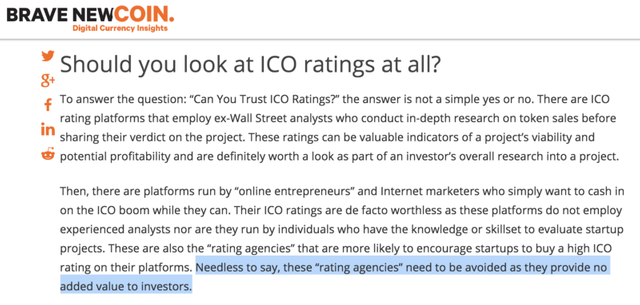ICO Ratings: Facts or Fake?
With the SEC takedown of John McAfee’s Twitter ICO endorsements, many are questioning whether or not ICO ratings are a scam.The answer to that question may be complicated.
It has become universally recognized that ICO ratings are definitively biased. Typically, companies that are endorsed by celebrities, experts, and/or influencers, usually pay a fee for that endorsement.
Why else would a busy cryptocurrency market expert run a full, objective diagnosis on a random ICO that few people have heard of?
Newcomers may be persuaded to invest in ICOs they have not researched if certain projects feature endorsement by people they trust. For example, Lil Uzi Vert promoting an ICO called DripCoin, or DJ Khaled backing Centra. It comes as no surprise that when the famous artists endorsed ICOs on social media, barely any details were provided regarding their use.
After doing some research, we come to find that Dripcoin doesn’t even have a secure website, much less a whitepaper featuring any detailed summaries of the initial coin offering’s purpose.
Can we really blame DJ Khaled for Centra’s failure? ICO ratings site ICO Bench gave a 4/5 rating to an ICO under criminal investigation with the SEC. Therein lies the inherent problem with ICO “expert” ratings. What exactly distinguishes on as an expert on something as new as initial coin offerings?
D.Y.O.R. — Do Your Own Ratings?
Outside of celebrity endorsements, there are numerous ICO listing sites popping up that offer ratings in exchange for tokens. A heavy presence of ICO rating sites is emerging.
Alexander Lielacher, an ICO journalist, wrote a piece on why you should not trust ICO ratings.
They make money from ICOs paying for reviews. These reviews are allegedly curated by “crypto experts.”
Perspective
Doing your own research is not easy. ICO Alert is a data resource enabling traders to research and discover the value of each coin offering listed, motivating investors to make educated decisions with their coins.